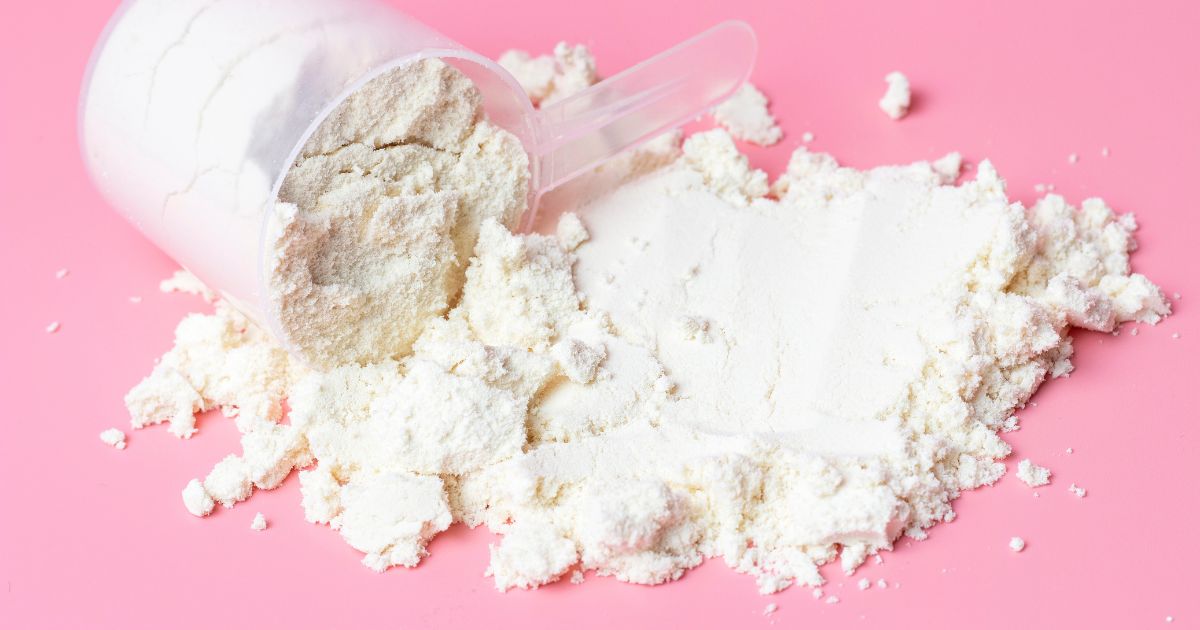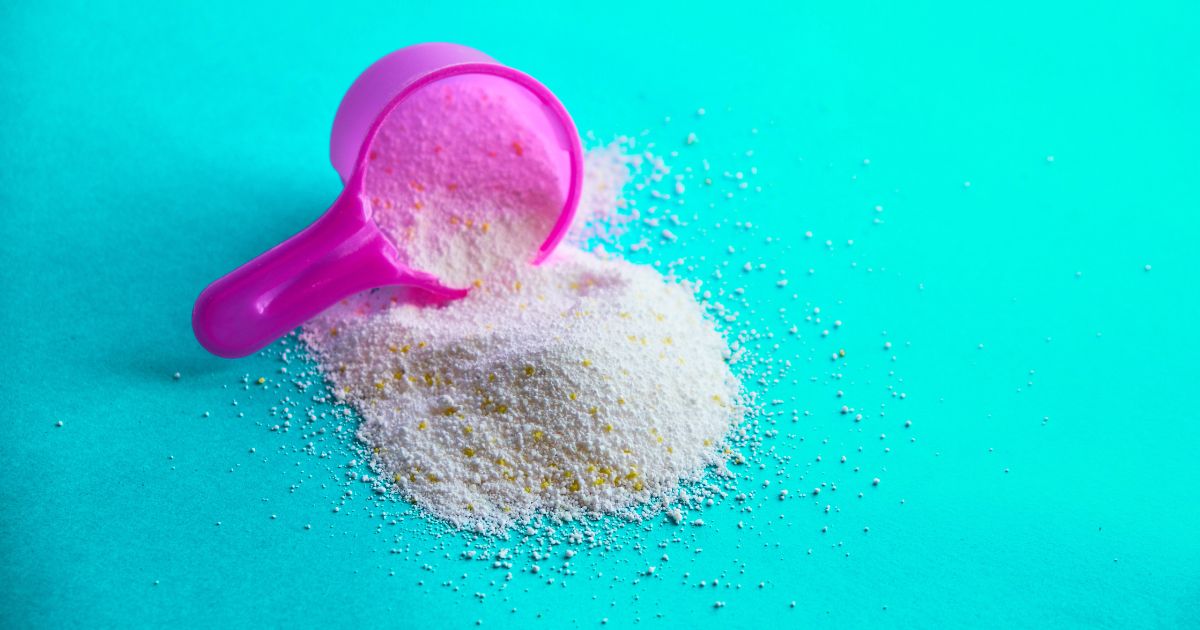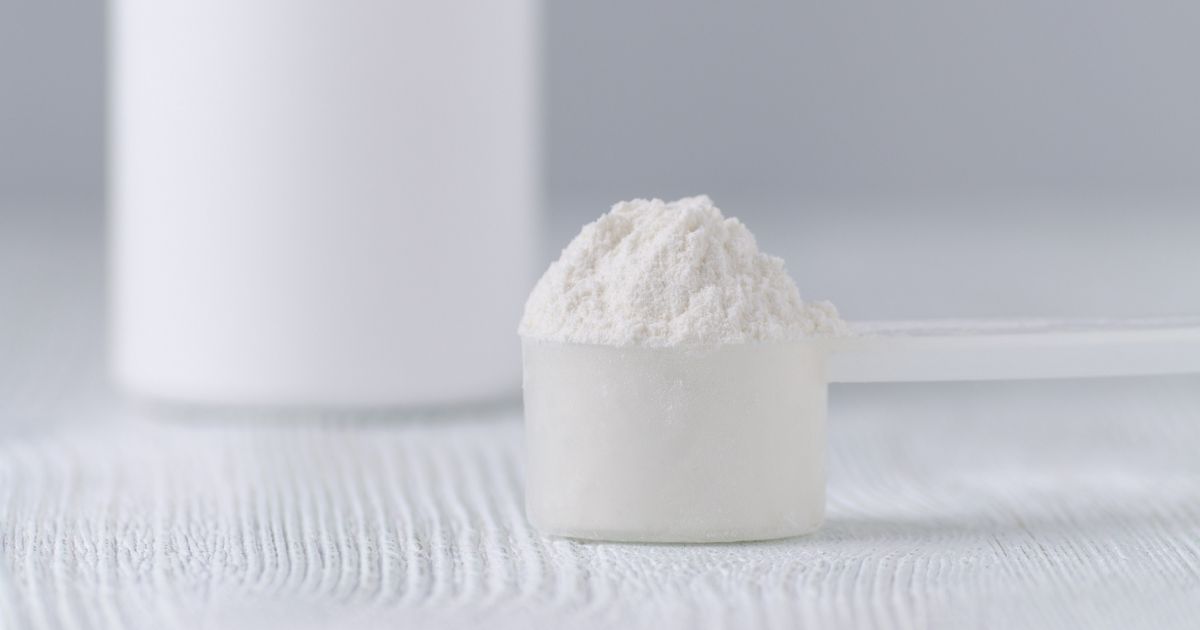In the eternal quest for youth, there are countless products promising fewer sags and wrinkles. While there may not be a magical elixir that can turn back the clock, science has uncovered a powerful ally in the battle against aging: collagen peptides.
In recent years, the world of health and beauty has been abuzz with the potential anti-aging benefits of these small-yet-mighty proteins, and collagen peptides are emerging as a key player in the fight for age-defying solutions.
So, let’s delve into the world of collagen peptides, and discover how they might just be a newfound anti-aging ally.
Unique Science Of Collagen

What Is Collagen?
Collagen, often referred to as the “glue” that holds the body together, is one of the most abundant proteins in the human body. Its complex, fiber-like structure creates connective tissue that’s strong, resilient, and stretchy.1
Collagen can be found in skin, tendons, ligaments, bones, muscles, blood vessels, and even in the cornea of the eye.2
Over time, collagen production in the body begins to decline. This leads to the visible signs of aging, such as wrinkles and sagging skin, as well as decreased joint flexibility and bone density. Though the focus is most often on aging, it’s important to note that collagen production also drops more rapidly with excess sun exposure, smoking, excess alcohol, and a lack of sleep and exercise.3
The Role Of Collagen In The Body
There are 28 types of collagen found in the body, though about 90% of that collagen is type 1. Type 1 collagen is found in the skin. The majority of the remaining collagen is found in:
- Type 2: Cartilage
- Type 3: Bone marrow and lymphoid tissues
- Type 4: Basement membrane (thin sheets of collagen that surround most types of tissues)
- Type 5: Hair and surfaces of cells4
In the skin, collagen forms a dense network providing elasticity and firmness – like springs in a mattress. This is why a decrease in collagen levels is associated with wrinkles, fine lines, and a loss of skin’s youthful suppleness.5
Collagen is equally important for joint health and mobility. In the joints, it supports muscles and their movements and acts as a cushion, reducing friction between bones. It helps keep bones strong and tendons elastic. As collagen deteriorates with age, joint issues can become more prevalent.6
How Does Collagen Production Change With Age?
Collagen production is an incredible process, but one that – unfortunately – undergoes significant changes with age.
During our youth, our bodies make a lot of collagen, and our skin retains a smooth, supple texture, with fewer signs of aging. However, as the years pass, this collagen “factory” production slows down, leading to a gradual decline in collagen levels in the body.7
This natural decline in collagen production begins in early adulthood. Collagen production declines by about 1.0%-1.5% a year.8
As collagen levels decrease, the skin loses its ability to bounce back, resulting in sagging and creases. Collagen also plays a pivotal role in maintaining skin hydration, as it traps and retains moisture. With reduced collagen, the skin may become more prone to dryness, with reduced radiance.9
Unfortunately, collagen’s impact on joint health also becomes apparent with age. The breakdown of collagen in cartilage and tendons can lead to stiffness and a decreased range of motion, making everyday activities more challenging.10
Due to the loss of collagen with age, it can be helpful to explore strategies like taking collagen peptide supplements.

Collagen Peptides Explained
What Are Collagen Peptides?
Collagen peptides are “hydrolyzed collagen” – a more easily absorbed form of collagen with smaller molecules. They’re derived from the natural collagen found in animal sources, such as bovine or marine collagen, through a process called hydrolysis. This process breaks down long collagen protein chains into smaller, more manageable peptides.11
This enhanced absorption makes collagen peptides an appealing choice for those seeking to harness the potential anti-aging benefits of collagen.
Plus, collagen peptides in the form of supplements are often odorless and tasteless, making them an ideal addition to foods and beverages, from smoothies and soups to coffee and baked goods.
Sources of Collagen Peptides
Collagen peptides can be sourced from a variety of animal-derived collagen types, each offering unique benefits and applications. The most common sources of collagen peptides include bovine, marine, and porcine collagen:12
Bovine Collagen: Bovine collagen is sourced from cowhide and bones and is one of the most widely used collagen types for supplementation. Bovine collagen peptides are often used in powdered form, making them easy to mix into beverages and recipes.
Marine Collagen: Marine collagen is derived from fish scales and skin, and it’s a popular choice for those who prefer a fish-based source of collagen.
Porcine Collagen: Porcine collagen is sourced from pig skin and can contain a mix of collagen types. It’s less common than bovine and marine collagen.
Potential Anti-Aging Benefits Of Collagen Peptides
Collagen peptides have garnered attention for their potential to combat both the visible and invisible signs of aging. But, can these small-but-mighty proteins help you look and feel more youthful?
Here are some of the key anti-aging areas that have been associated with collagen peptide research.
- Enhanced Skin Elasticity and Hydration: Collagen is a major component of the skin’s structure, providing it with the necessary support to help maintain skin elasticity and hydration. Collagen peptides have been linked to enhanced skin moisture retention and elasticity, helping to reduce the appearance of fine lines and wrinkles. By promoting the production of collagen in the skin, these peptides may contribute to a smoother, more youthful-looking complexion.13
- A Reduction in the Appearance of Fine Lines and Wrinkles: As collagen production naturally decreases with age, the skin becomes more prone to sagging and wrinkles. Collagen peptide supplementation may stimulate the body’s collagen production, which could help counteract such visible signs of aging.14
- Nail Health: Collagen isn’t just limited to potential skin benefits; it may also play a role in maintaining strong and healthy nails, possibly reducing issues like brittle nails.15
- Joint and Bone Support: Collagen peptides may help support joint flexibility and ease potential joint discomfort. Additionally, these peptides may contribute to bone density support.16
- Digestive Health: Finally, collagen peptides have also been linked to digestive health support.17
The potential anti-aging benefits of collagen peptides aren’t just skin-deep; they can extend to various aspects of well-being. However, it’s essential to remember that results can and will vary from person to person.
How To Incorporate Collagen Peptides Into Your Routine
Collagen-Rich Dietary Sources
In addition to collagen supplements and powders, you can incorporate collagen into your diet through various natural food sources.
- Beef Bone Broth
- Chicken and Turkey Broth
- Fish Broth
- Tough Meat Cuts (full of connective tissue, i.e. brisket, chuck steak)
- Gelatin-Rich Foods (desserts included)18-20
The best sources of collagen tend to come from the skin, cartilage, and bones of certain animals. So a broth is often a convenient way to integrate collagen into your diet.
While incorporating these dietary sources can help boost your collagen intake, it’s important to remember that the amount of collagen obtained from food alone may not be sufficient to address anti-aging concerns.
So, supplementing with collagen peptides, in conjunction with a balanced diet, is often recommended.
Supplements And Powders
Collagen supplements and powders have gained immense popularity as a convenient way to boost collagen intake, making them accessible to a wide audience.
Collagen supplements are typically available in several forms, including capsules, tablets, and powdered formulations. Collagen powders are particularly versatile, as they can be mixed into liquids and foods, allowing users to customize their daily collagen intake.
When selecting a collagen supplement, consider factors such as the source you’d like to consume (bovine, marine, or porcine collagen) and any additional ingredients that may enhance absorption or offer complementary potential health benefits.
Other Collagen-Rich Recipes And Ideas
Here are some creative and delicious collagen-rich recipes and ideas to consider alongside collagen peptide supplements.
- Collagen Smoothie: Start your day with a nourishing collagen smoothie. Blend collagen powder with your favorite fruits, leafy greens, yogurt, almond milk, or coconut water. This quick and satisfying drink provides a dose of collagen alongside essential vitamins and minerals.
- Collagen-Infused Coffee or Tea: Enhance your daily coffee or tea by stirring in collagen powder. This simple addition doesn’t just elevate the flavor of your morning beverage – it also provides anti-aging potential.
- Collagen Protein Bars: Make your own collagen protein bars by mixing collagen powder with nuts, seeds, dried fruits, and a binding agent, like honey or nut butter. Shape and refrigerate the mixture for a convenient and nutritious on-the-go snack.
- Salads with Collagen-Boosting Ingredients: Create salads featuring leafy greens, colorful bell peppers, citrus fruits, and protein sources, like grilled chicken or salmon. Then, top it off with a homemade collagen-rich dressing made from olive oil and collagen powder for a delicious, skin-nourishing meal.
- Collagen-Enriched Desserts: Consider making collagen-infused gummies or collagen-added yogurt parfaits. These treats satisfy your sweet tooth while delivering a boost of collagen.
These recipes and meal ideas allow you to integrate collagen into your diet without compromising on taste. Experiment with different ingredients, and create dishes that help support your anti-aging journey and delight your taste buds.

Final Thoughts On Collagen Peptides And Anti-Aging
The excitement around collagen peptides lies in their potential to help support skin elasticity and hydration and reduce the appearance of fine lines and wrinkles. Collagen peptides may also play a role in fortifying joint health, enhancing bone density, promoting nail strength, and supporting digestive well-being.
It’s important to remember that while collagen peptides can be a valuable addition to your anti-aging plan, they’re not a one-size-fits-all solution. Individual results can vary, and a holistic approach to aging well should include a well-balanced diet, regular exercise, adequate hydration, and a consistent skincare routine.
You should also consult with a healthcare practitioner before adding any new supplement to your diet.
If you’re seeking a thorough approach to aging gracefully, collagen peptides may just be worth adding to your toolkit.
Sources
- https://www.hsph.harvard.edu/nutritionsource/collagen/
- https://www.hsph.harvard.edu/nutritionsource/collagen/
- https://www.hsph.harvard.edu/nutritionsource/collagen/
- https://www.livescience.com/collagen.html
- https://www.usatoday.com/story/life/health-wellness/2023/08/26/what-does-collagen-do/70496203007
- https://www.usatoday.com/story/life/health-wellness/2023/08/26/what-does-collagen-do/70496203007
- https://parjournal.net/article/view/3863
- https://parjournal.net/article/view/3863
- https://parjournal.net/article/view/3863
- https://www.physio-pedia.com/Effects_of_Ageing_on_Joints
- https://www.ncbi.nlm.nih.gov/pmc/articles/PMC6891674/
- https://www.ncbi.nlm.nih.gov/pmc/articles/PMC8620403/
- https://www.ncbi.nlm.nih.gov/pmc/articles/PMC6835901/
- https://www.ncbi.nlm.nih.gov/pmc/articles/PMC8824545
- https://pubmed.ncbi.nlm.nih.gov/28786550/
- https://www.arthritis.org/health-wellness/treatment/complementary-therapies/supplements-and-vitamins/can-collagen-supplements-help-arthritis
- https://pubmed.ncbi.nlm.nih.gov/35639457/
- https://www.ncbi.nlm.nih.gov/pmc/articles/PMC7271718/
- https://www.hsph.harvard.edu/nutritionsource/collagen/
- https://www.ncbi.nlm.nih.gov/pmc/articles/PMC6566836/#:~:text=Other%20dietary%20sources%20of%20collagen,broth%20from%20bones%20or%20cartilage.
